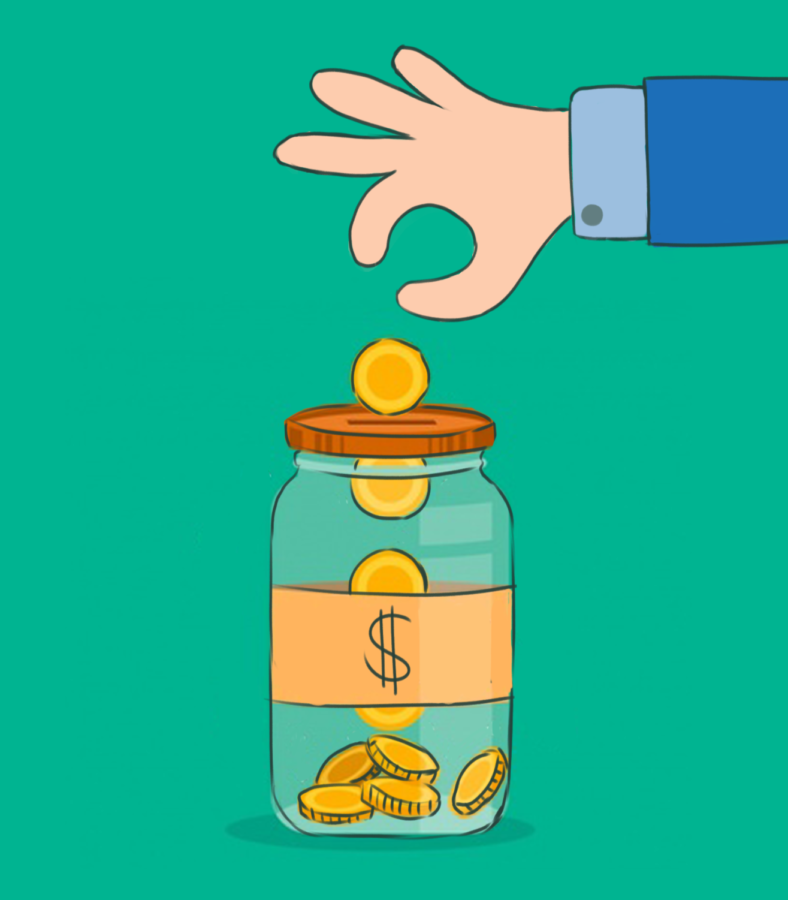Make money worth something
You can change the world if you change your spending habits.
Dropping a coin into the savings jar.
Since the Industrial Revolution the United States of America has been in a nonstop cycle: buy, use, discard, repeat. This consumerism washing machine has drastically limited the way we value a dollar.
As someone who lives below the poverty line, I have learned my fair share about where I ought to allocate money. Pay the bills. Pay for the credit cards. Pursue my passions.
Teenagers are most inclined to spend their money on food and clothes, but there is so much more to explore in life. Here’s some quick math. If an individual buys fast food for lunch three times a week and spends $100 on clothes a month, he/she has spent about $220 on quick gratifiers by the end of the month. Now let’s flip the script. Say this person eats food from home and refrains from purchasing clothing the next month. With that $220 he/she can buy plane tickets for a memorable vacation in addition to diapers for the struggling single mother of four who works at the fast food restaurant he/she frequents.
What about the world’s environmental issues?
It only took ten days to raise $835 million for the Notre Dame fire, but the fires in the Amazon Rainforest are still raging. There have been about 80,000 fires in the Amazon this year and this number is only increasing. Why is it so easy to provide funds for a building, yet so difficult to breathe life into the world we live in?
Consumerism has branded a deafening question into our minds: What does it do for me? For example the Notre Dame inferno provided us with the opportunity to connect to the past it once gave life to. The effect of the dollars contributed continues to manifest as the cathedral is rebuilt to its former glory with each grandiose wall and antique bell. Yet we would jeopardize our oxygen, our planet, by treating it poorly and refusing to hope for, or to pay for, a solution. We can’t see the immediate effects of the research efforts to extinguish the blazes and cure the earth we’ve poisoned, so we simply don’t fund it.
We have mistaken the news as a vessel of information about drastic events to complain about. The news is intended to be a wake-up call, inspiring informed action to bring us out of our own little worlds. We are not victims of national and international catastrophes: we are solutions. The world is bigger than hundred dollar athletic shorts and forty dollar plastic nails.
If 10 percent of the North Carolina population gave one dollar, hundreds of Hurricane Dorian victims could be fed, clothed and rehomed.
Everybody has a story that connects them with others. I empathize greatly with chronic illness survivors because of the battle I’ve watched my mom wage with Lyme Disease. Where does your heart call you? Do you empathize with animals? The homeless? Devastation caused by environmental pollution?
The dollar you don’t spend can save a life you didn’t know needed it. If you want to be the change you want to see in the world, you must first put others’ needs before your wants.






Anne Cray • Oct 28, 2019 at 5:19 pm
Excellent and very insightful article.
Sean • Oct 28, 2019 at 2:14 pm
What an insightful young lady and inspired writer, Abigail Mosher is! I bet her parents are proud!